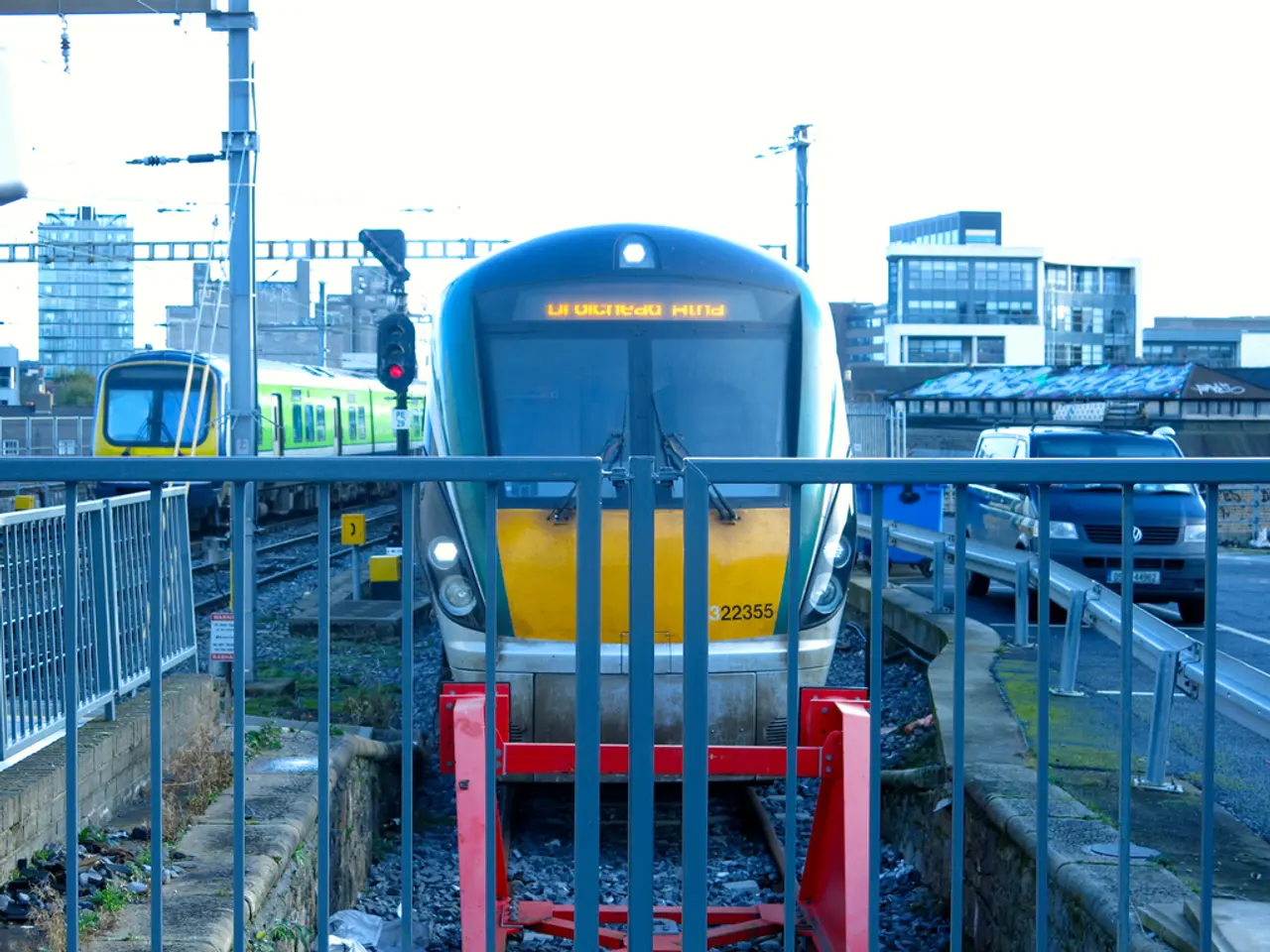Anticipated Rail Merger Dilemma: Increased Expenses, Potential Services Deterioration
In a recent development, the Rail Customer Coalition (RCC) has voiced concerns about the proposed $85 billion merger between Union Pacific and Norfolk Southern. The RCC, which represents companies and trade associations responsible for more than half of the total volume of freight shipped by rail each year, argues that the merger could compromise competition across the U.S. freight rail network.
The RCC's concerns stem from the current state of the industry, where six railroads already control more than 90% of freight traffic. The merger, if approved, would further reduce the number of large rail carriers, potentially leaving rail customers with fewer options.
The merger partners claim that the consolidation would speed up freight by reducing delays when trains are handed over between railroads. However, the RCC believes that this is insufficient to meet the competition enhancement threshold.
The Surface Transportation Board (STB), the regulatory body responsible for overseeing the nation's freight rail network, has rules that require a merger to "enhance competition." The RCC has called for a thorough review of the proposed merger and for the STB to take action to enhance competition, service, and supply chain stability.
The RCC also points to past rail mergers, which they claim have led to service deterioration, cost increases, and job losses. Additionally, they argue that the reduction in the number of large rail carriers from 23 to six has contributed to the increased rail freight rates.
According to the RCC, rail freight rates, adjusted for inflation, have increased by more than 40% over the past 20 years, surpassing demand and operating expenses. In comparison, truck rates have only increased by about 30%. This disparity, the group claims, is a cause for concern.
The warning comes just days after President Donald Trump met with UP Chief Executive Jim Vena in the Oval Office. However, the statement does not mention any potential action the STB might take regarding the merger.
The RCC's statement does not provide specific details about the consultant or the exact timeframe of the study that shows rail freight rates have increased almost 70% more than truck rates in the same period. Nor does it mention any other specific railroads or mergers apart from the general reduction of large rail carriers from 23 to six.
Despite the lack of specific details, the RCC's warning serves as a reminder of the potential implications of the merger and the need for careful consideration by the Surface Transportation Board.
Read also:
- Developing a Sales Strategy: Methods, Sample Plans, and Templates for Sales Plans
- Events that transpired on the night of August 13, 2025.
- Conde Nast's Soaring Periods Recounted by Michael Grynbaum
- Manchester-based entrepreneur Amman Ahmed propelled an unusual venture to an 8-digit empire, without external financing. This is the story of how he crafted a groundbreaking genre in the world of animal-oriented media, one growl and rhythm at a time.




